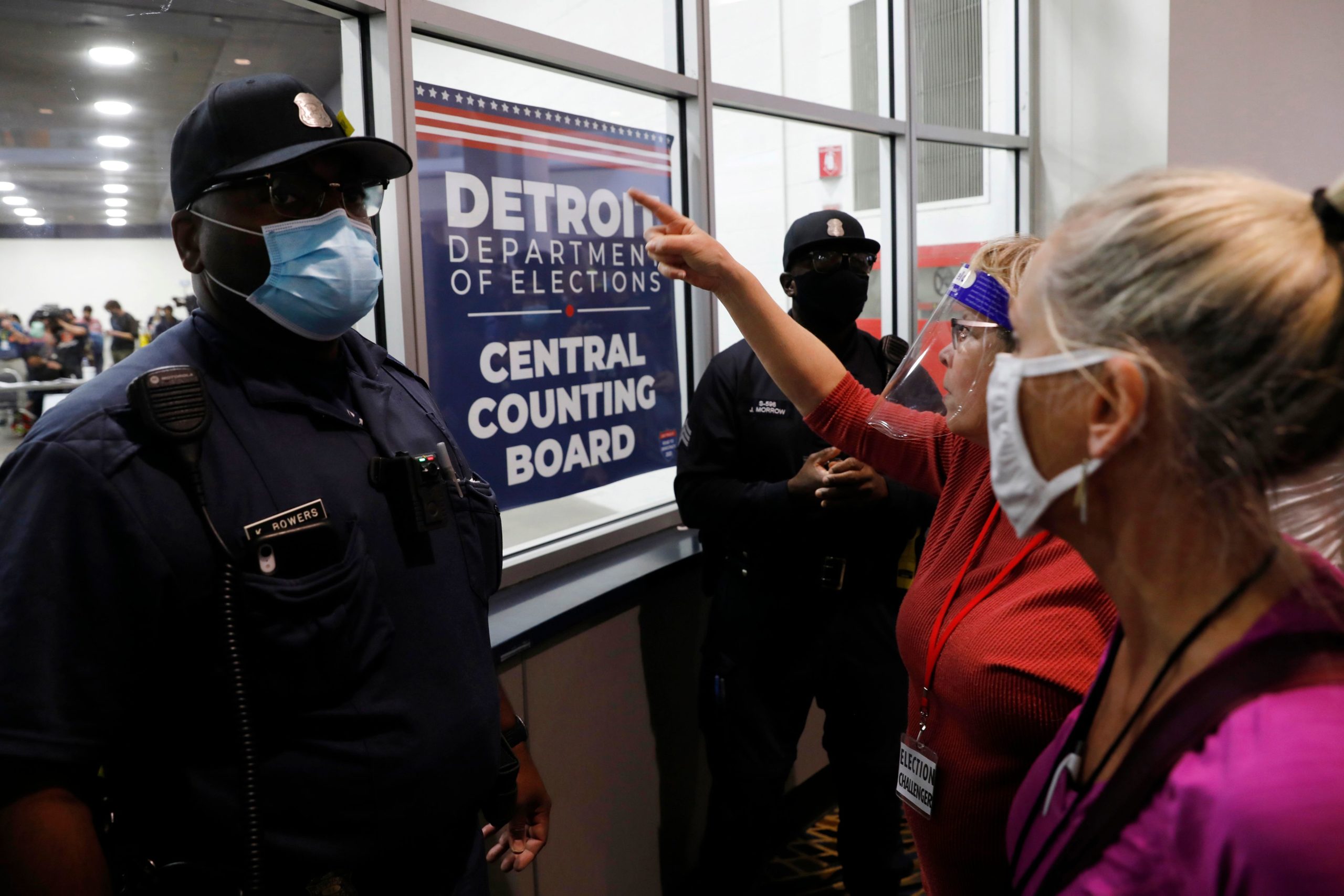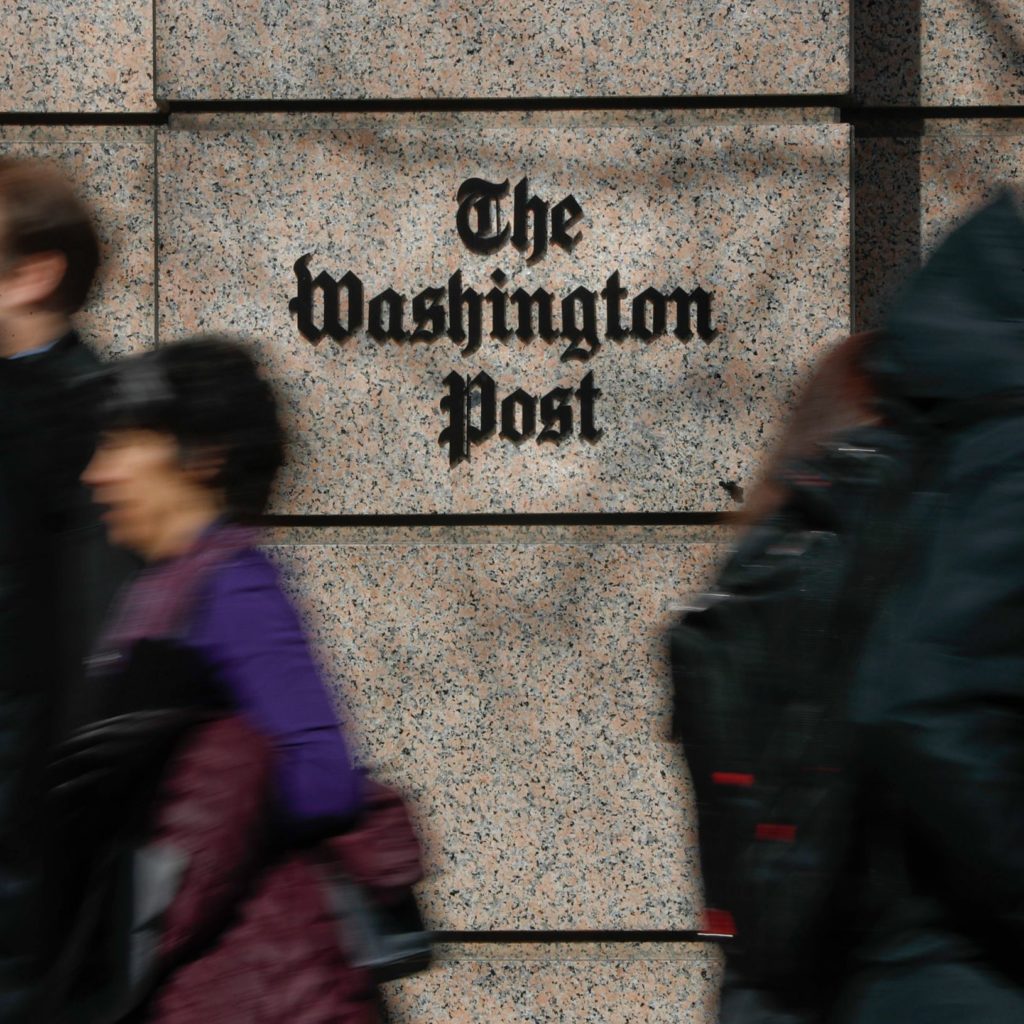
Police officers face supporters of Donald Trump as they chant slogans outside the room where absentee ballots for the 2020 general election are being counted at TCF Center on November 4, 2020 in Detroit, Michigan.
From the editor
Americans are just about a third of the way through political primary season and already, according to a Washington Post analysis, scores of Republican candidates have been nominated who falsely claim the 2020 election was rigged. If those election-denying candidates win in November, the Post reported, “many will hold positions with the power to interfere in the outcomes of future contests — to block the certification of election results, to change the rules around the awarding of their states’ electoral votes or to acquiesce to litigation attempting to set aside the popular vote.”
That is an alarming prospect for the 2024 elections and, coinciding with revelations from the House committee investigating the Jan. 6 insurrection, represents a real threat to U.S. democracy. Newsrooms — large and small — are responding by deploying reporters and creating “democracy beats” to cover voting and voter legislation at the local and federal levels. “Connecting the dots between what’s going on in disparate communities and menaces on a greater scale takes vigilance,” Celeste Katz Marston writes in our story, “and a willingness to look beyond both traditional horse race coverage and bothsidesism.”
The threats to democracy — and to journalism — are proliferating. Just as former President Trump did before the 2020 vote, Brazilian President Jair Bolsonaro is raising doubts about his country’s election system, despite little evidence of past fraud, ahead of the October presidential poll. In its 2021 World Press Freedom Index, Reporters Without Borders found that journalism was “completely or partly blocked in 73% of the 180 countries ranked.” From Kashmir to Russia to Mexico and beyond, journalism is under threat.
To chronicle how journalists are managing to continue to do vital independent work, often at great personal risk, we’re continuing to publish our series Reporting at Risk, a collection of essays by reporters working under physical, political, legal and — especially in authoritarian regimes — increasingly existential threats.
Independent journalist Javier Garza Ramos explains why Mexican newsrooms need financial as well as editorial strength to resist pressure from politicians.
Roman Anin, founder of Russian investigative outlet IStories, and Sharon Moshavi, president of the International Center for Journalists, describe the ex-pat Russian journalists on the frontline of the information war with Putin’s propaganda.
Steven Gan, co-founder and editor-in-chief of Malaysiakini, details how in Malaysia lawsuits are used as a way to silence news organizations.
And Glenda Gloria, co-founder and executive editor of Rappler in the Philippines, which has successfully resisted efforts by the Duterte regime to quash its reporting, has stirring advice every journalist needs to hear right now: “In the face of a tyrant, you can’t — mustn’t — blink. In the face of threats, you can pause but cannot — mustn’t — stop. In a well of disinformation, you can’t — mustn’t — sink.”
Sincerely,
James Geary
Editor, Nieman Reports

Felicia Sonmez’s Firing Highlights the Limits of Progress for Women in Newsrooms
The Washington Post sent a message: Be nice when a man displays a bit of sexism. Or be quiet

Covering “Gringo-Style” Shootings
What American gun violence looks like to reporters who have to deal with a very different kind of threat

Opinion Pieces (Including This One) Are Ruining the Internet
The news industry uses opinion pieces to drive traffic. They undermine the very reason journalism exists


